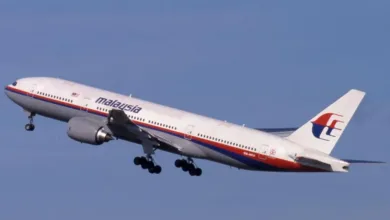A polio vaccination campaign in north Gaza is set to resume on Sunday, a day after a strike on the Sheikh Radwan clinic injured six people, including four children, according to the World Health Organization (WHO).
The WHO did not specify the party responsible for the attack, but a Gaza civil defence official told AFP news agency that it was carried out by an Israeli quadcopter. Israel is investigating the incident but expressed doubts about its involvement.
Unicef, leading the vaccination effort, condemned the strike, calling it “another example of the indiscriminate strikes on civilians.” The second phase of the vaccination campaign, which began on Saturday, was previously postponed in October due to severe Israeli bombardments, mass displacement, and restricted access.
Gaza reported its first polio case in 25 years in August, paralyzing a baby boy and prompting the vaccination campaign. As the immunisations resume, 15 UN and humanitarian organizations have described the situation in north Gaza as “apocalyptic” nearly a month after an Israeli ground offensive began.
The WHO announced a humanitarian pause in the fighting to facilitate the vaccination campaign in Gaza City, set to run for three days. In a separate incident in Jabalia, a Unicef staff member’s car came under fire from what is believed to be a quadcopter. The driver was unharmed but “deeply shaken,” prompting Unicef’s head, Catherine Russell, to call for an Israeli investigation.
Despite the resumption, about 15,000 children under 10 in towns such as Jabalia, Beit Lahia, and Beit Hanoun remain inaccessible, compromising the campaign’s effectiveness. The WHO aimed to administer a second dose of the oral polio vaccine to 119,000 children in the area, a target now deemed “unlikely due to access constraints.”
The initial phase of the campaign, conducted from September 1 to 12, successfully reached 559,000 children under 10 across south, central, and north Gaza. However, the current humanitarian pause covers a significantly smaller area, limited to Gaza City.
Delays in administering the second dose could jeopardize efforts to halt the transmission of polio, a highly contagious and potentially deadly disease. Medical experts stress that at least 90% of children need a minimum of two doses to interrupt transmission.
The UN human rights chief recently described the situation in north Gaza as the war’s “darkest moment.” Hundreds of people have been killed since Israel launched a ground offensive in Beit Lahia, Jabalia, and Beit Hanoun on October 6, targeting Hamas fighters.
The WHO reports that at least 100,000 people have fled north Gaza for safety in Gaza City, facing severe shortages of food, water, and medical supplies. A joint statement from UN agencies, including the WHO, on Friday, labeled the situation “apocalyptic,” with the entire Palestinian population in the area “at imminent risk of dying from disease, famine, and violence.”
The UN estimates that about 100,000 residents remain in dire conditions. The US has urged Israel to increase humanitarian aid to Gaza, warning of potential cuts to American military assistance if aid is not boosted.
The conflict escalated after Hamas’s October 7 attack on southern Israel, killing approximately 1,200 people and taking 251 hostages. Since then, more than 43,300 people have been killed in Gaza, according to the Hamas-run health ministry.
Due to restrictions, international journalists from media organizations, including the BBC, do not have independent access to Gaza, making it challenging to verify on-ground facts.
